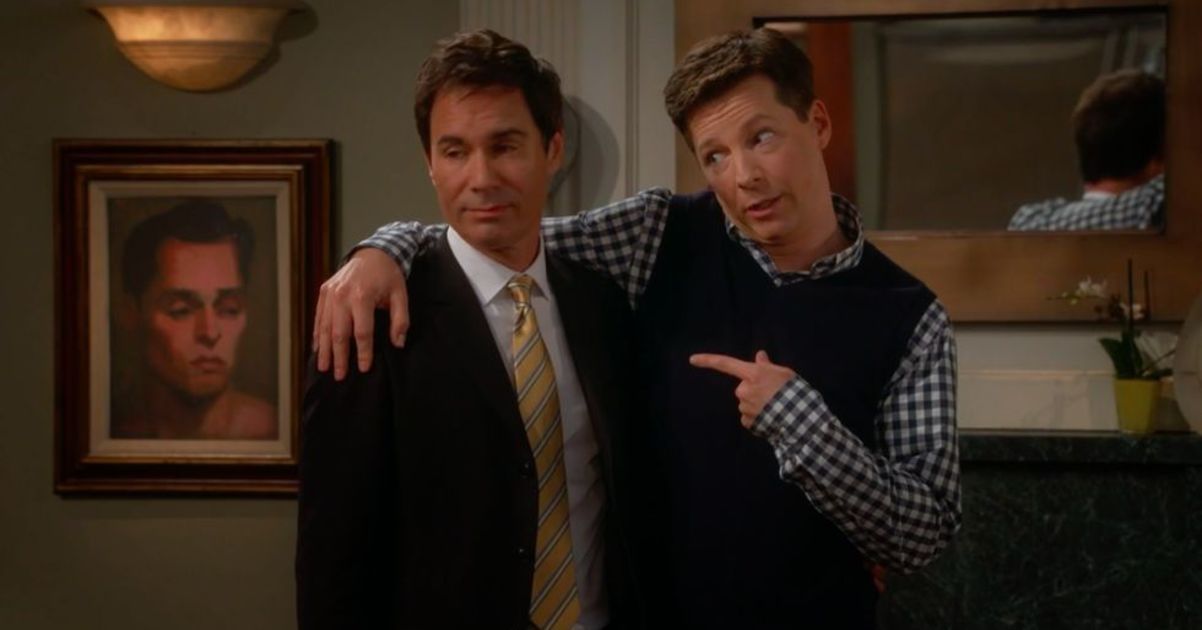There’s a difference between a gay man and a faggot.
For most of my young life, my mother was raising a gay man but actively suppressing a faggot. I played with a neighbor’s Spice Girls dolls, but couldn’t have my own. I had to walk, not sashay. She wanted me to learn Timbaland’s rap on “Are You That Somebody?” and not just sing Aaliyah’s part.
The subtle differences between a gay man and a faggot are not usually something up for discussion on primetime television, let alone NBC’s Must See TV lineup but that’s what happened in April 1999.
In the episode “Will Works Out,” titular character Will Truman finds himself embarrassed of his friend, the flamboyant Jack McFarland. When Jack tags along to his gym, Will keeps his distance and calls Jack a “fag” to Grace Adler, his gay BFF. Jack, standing feet away and out of sight, hears everything.
When Jack confronts his friend about using the word, Will says that every time Jack opens his mouth a “purse falls out.” But, very quickly, Jack gets to the heart of the matter.
Jack knows that Will is not out to everyone he knows and that coming out is a choice for Will, the more masc-of-center of the two. Jack also knows that, like mainstream straight society, Will thinks a faggot is something negative: promiscuous, flamboyant, and feminine. And while you’d suspect that Will & Grace, a network sitcom airing alongside Friends, would take Will’s side and no doubt most viewers did the show forces Will to apologize to Jack and see that he’s in the wrong.
At one point, he even asks Grace, “Am I a bad gay man?”
Ultimately, while the show forces Will to apologize, it doesn’t ever make him answer that question. And the answer is, no, he’s not a bad gay man, but an exceedingly common one. One that, even though he sleeps with men, believes that femininity is bad.
Femmephobia in the queer community is alive and well in 2017 and combatting it has barely moved an inch since Will’s f-bomb. But this episode allows Jack to stand up for faggotry, to embrace being free and liberated. Will, on the other hand, is trapped by his fear of being known as gay. And that fear inadvertently speaks to a deeper truth: he is most likely ashamed of it, or at least understands the social stigma of his queerness and wants to separate himself from it.
But Jack doesn’t do that.
To NBC’s late 1990s straight white mainstream audience, Jack was a curio, a hypersexual, femme stereotype with a well of one-liners as deep as Mary Poppins’ tote. For gay men watching the show, Jack was one of two possibility models the show offered. While everyone knows who they are when it comes to Friends (I’m a Rachel), Sex and the City (Samantha with Carrie tendencies) and Golden Girls (Dorothy in the streets, Blanche in the sheets), Jack and Will offered less a choice and more a spectrum.
Like many other gay men, I used Jack and Will as parameters for how I could act. Friends I knew came out to their parents by telling them they were more of a “Jack” than a “Will.” My mom, I know, would’ve hated to hear that. And while those who maybe saw their authentic selves in the more palatable Will, those of us who closely emulated Jack knew the future would be harder.
Throughout the series, Jack never saw his flamboyance as a hindrance, only an asset. His wrist was limp, but he was untethered. His bed was never empty and his artistic output was always high. Will got the cool job and the marquis name on the sitcom, but Jack had all the damn fun.
When Will called Jack a “fag,” I suspect, he wasn’t hating Jack’s flamboyance. He was envying Jack’s freedom. That’s not to say that every fag is free. As femme as some of us are, we are also struggling with our masculinity and femininity and what it means. We still feel the sting of the word. But for Will to lash out at Jack for his faggotry says more about Will than it ever can about Jack.
And, I suspect, when we hear “faggot” in a detestable fashion I only ever use the word positively from a straight man or another queer, we are perhaps hearing their own jealousy. They’re jealous that we cracked the code. That we get to be a “man,” but are not limited to masculinity. That we get to perform outside of the roles flung upon us. That we get to just be.
Don't forget to share:
Help make sure LGBTQ+ stories are being told...
We can't rely on mainstream media to tell our stories. That's why we don't lock our articles behind a paywall. Will you support our mission with a contribution today?
Cancel anytime · Proudly LGBTQ+ owned and operated
Read More in Culture
The Latest on INTO
Subscribe to get a twice-weekly dose of queer news, updates, and insights from the INTO team.
in Your Inbox













